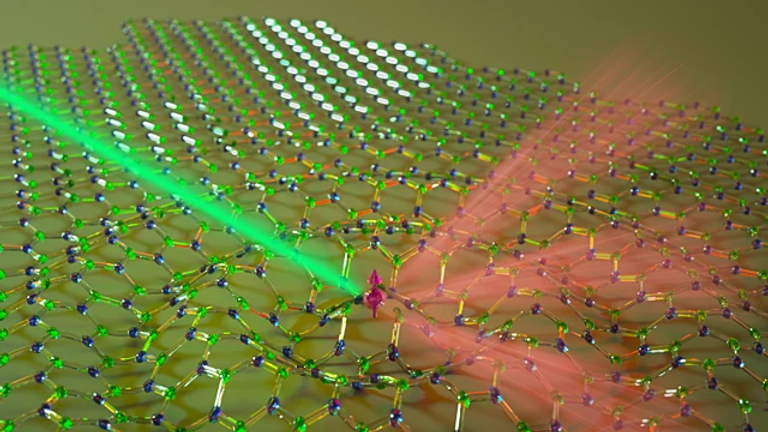Quantum science and engineering can save energy, speed up computation, enhance national security and defense, and innovate health care. With a grant from the National Science Foundation, researchers from Indiana University (both Bloomington and IUPUI campuses), Purdue University and the University of Notre Dame will develop industry- and government-relevant quantum technologies as part of the Center for Quantum Technologies. Purdue will serve as the lead site.

"The Center for Quantum Technologies is based on the collaboration between world experts whose collective mission is to deliver frontier research addressing the quantum technological challenges facing industry and government agencies," said Gerardo Ortiz, Indiana University site director, scientific director of the IU Quantum Science and Engineering Center and professor of physics. "It represents a unique opportunity for the state of Indiana to become a national and international leader in technologies that can shape our future."
"This newly formed center is unique in many aspects," said Ricardo Decca, professor and chair of the Department of Physics at IUPUI. "It brings together experts in many scientific disciplines -- computer science, physics, chemistry, materials science -- from three universities and four campuses and companies developing the next generation of quantum-based information and sensing systems. The future seems very bright."
Given the wide applicability of quantum technologies, the new Center for Quantum Technologies will team with member organizations from a variety of industries, including computing, defense, chemical, pharmaceutical, manufacturing and materials. The center's researchers will develop foundational knowledge into industry-friendly quantum devices, systems and algorithms with enhanced functionality and performance.
"Over the coming decades, quantum science will revolutionize technologies ranging from the design of drugs, materials and energy harvesting systems, to computing, data security, and supply chain logistics," IU Vice President for Research Fred Cate said. "Through the CQT, Indiana will be at the forefront of transferring new quantum algorithms and technologies to industry. We are also looking forward to educating the quantum workforce for the future through the corporate partnerships that are integral to the funding model of the CQT."
Committed industry and government partners include Accenture, the Air Force Research Laboratory, BASF, Cummins, D-Wave, Eli Lilly, Entanglement Inc., General Atomics, Hewlett Packard Enterprise, IBM Quantum, Intel, Northrup Grumman, NSWC Crane, Quantum Computing Inc., Qrypt and Skywater Technology.
Additionally, the Center for Quantum Technologies will train future quantum scientists and engineers to fill the need for a robust quantum workforce. Students engaged with the center will take on many of the responsibilities of principal investigators, including drafting proposals, presenting research updates to members, and planning meetings and workshops.
The center is funded for an initial five years through the NSF's Industry-University Cooperative Research Centers program, which generates breakthrough research by enabling close and sustained engagement between industry innovators, world-class academic teams and government agencies. The IUCRC program is unique in that members fund and guide the direction of research through active involvement and mentoring.
Other academic collaborators include Sabre Kais, center director and distinguished professor of chemical physics at Purdue; Peter Kogge, the University of Notre Dame site director and the Ted H. McCourtney Professor of Computer Science and Engineering; and David Stewart, Center for Quantum Technologies industry liaison officer and managing director of the Purdue Quantum Science and Engineering Institute.






